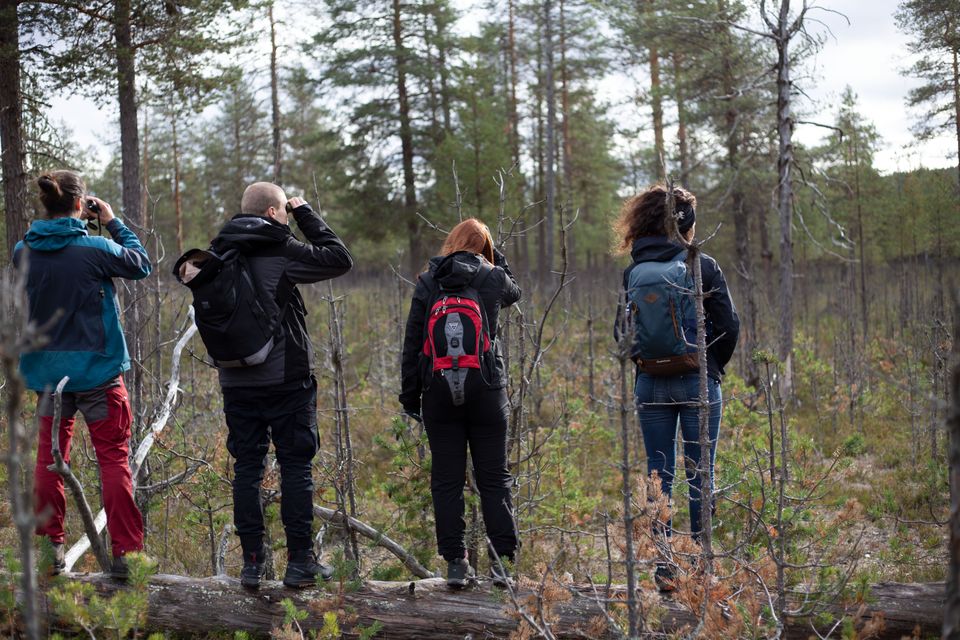Was a Bachelors in Biology Worth It? 🌱 🍄 🐝

Yesterday I submitted my Bachelors thesis and with that I have officially finished my undergraduate studies. Yay! .. 😌
What Do You Learn at University as a Biologist?
The less expected ones:
- Advanced basics in physics and mathematics. Including integrals, differential calculus and statistics.
- Two terms (1 year) with 3 courses of chemistry of which one takes place in the chemistry lab where you learn things such as distillation, extraction and chromatography.
- Building on that a bridge to biology is formed via biophysics and biochemistry
- bioinformatics
What we actually wanted:
In depth knowledge of all biology fields
- ecology & biodiversity
- genetics
- neurobiology
- microbiology
- physiology (plants, cells and animals)
What do those fields cover?
Ecology & biodiversity 🐸
Identification of animals and plants
- Phylogeny
- Evolution
- Conservation and Wildlife management
The tree of life, the origin of life, how you and I fit in and how that affects our everyday lives. You would be surprised to learn that many ecology related topics such as altruism and cheating in social animals cover with social sciences and economics.
Genetics 🧬
- DNA
- What it is made of
- How and why it is made
- What function it serves
- Biotechnological application - genetic engineering.
Interesting things such as genetic plasticity and your capability to rewrite your genetic information voluntarily. Genetic heritability and how your genetics affect you and how they will affect your offspring.
Neurobiology 🧠
- What brains are made of
- How brains work
Who lives in 2022 and has not heard of the terms Serotonin and Dopamine , lives under a rock. Knowledge on how our moods, decisions, actions and focus are being regulated helps tremendously in modulating your behaviour and well-being. So i.e.: did you know you can improve your focus by training yourself to not blink? (Terhune et al., 2016) Here you go 👨🔬 a free button on your body to press to improve your performance.
Microbiology 🧫
- About the Cell
- Its Components
- Its Environment
- Molecular pathways, signalling cascades
- Chemistry and Biophysics
- Bacteria, Fungi, Archaea, Viruses etc.
Ever went about your day ignorant of the fact that you are composed of 37 trillion living units? ... like right now? That there is a full microbiome of bacteria in your guts, skin... all over you. The air you breathe is filled with spores, bacteria and viruses alike. Microbiology is also the reason you got a COVID vaccine 🤓
Physiology 🫁
- About functions and mechanisms of organisms
Wondered how plants make their leaves or why we have to breathe? How it is that your heart beats or how you digest your food? How what you eat affects you? Seem like pretty important topics for anyone to know about. Especially when forced to live as a living organism for the rest of your life 👁
Additional things not mentioned above:
- Hands on experience in cutting open animals, their ribcages and brains.
- Hands on experience in looking for animals and plants in the field & handling them.
- Scientific truth, hypothesis testing and statistical evaluation of data.
So Was it Worth it?
(insert funny thing here)
Short answer: Yes, one of the best decisions I have made.
Thanks to the opportunity to study abroad I was able to experience studies at two universities. Without that perspective I would have remained blind towards important things my home university lacked. With this I want to hint on the fact that undergraduate study programs differ.
A conservative study program.
What makes the study program in Germany conservative?
- Surprising amount of math, chemistry and physics (I thought I would get to avoid that 🥲).
- Weekly exams 📅 (with potential exmatriculation).
- Individual over team spirit.
- Strong sense of hierarchy. 🦞
- Big exams at the end of the term.
- Broader introduction, covering more fields.
7 Skills I Acquired Besides the Knowledge
- Ability to process complex information and approach difficult tasks
- Build a system that works
- Hear what is important, take notes
- Memorisation techniques
- Evaluate information, its reliability and source
- Write and consequently think and speak
- Present information and my own opinion in front of an audience
Opportunities that were offered to me
- Erasmus
- Lab Job
- Tutoring Jobs
- Expeditions to Africa, Norway, Galapagos and so on.
Summary
Perisoreus infaustus L.
The field of biology will open your eyes to the world around you, only for you to realise that you are part of it and what that means. It helps you orient yourself in the world and set values. In example, to know that you are from a hunter gatherer background, may help you understand why it is so necessary to go for a run every now and then. However, once you learn about the physiology of the heart...
you run out of fear! 👀🫀
Looking at a leaf is different now 🍀 It is not just a mere question mark anymore. It is a complex system with important processes such as photosynthesis, carbon fixation and oxygen release. Soil is not just dirt anymore, in just one hand you are holding a huge diversity of living organisms, which we all depend on. Thanks to biology, it may be possible to reconnect with the wild and our roots as humans.
I had my ups and downs with biology. But it is definitely something that takes a special place in my heart. A private place I can go to at any time. On a venture to the frontlines of knowledge and into the wild.
If you want to know more about my exchange in Finland, stay put for the next post ^^
Thanks for reading,
Hans. 🐾

Member discussion